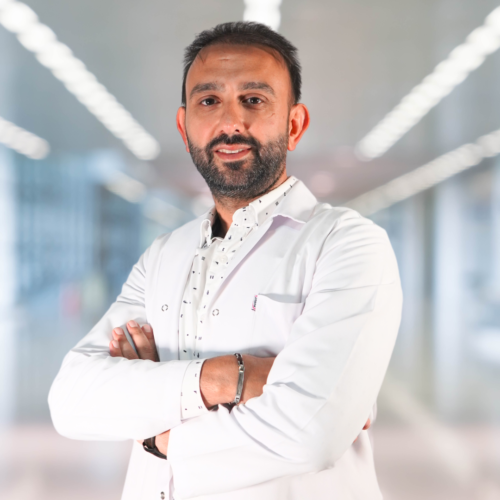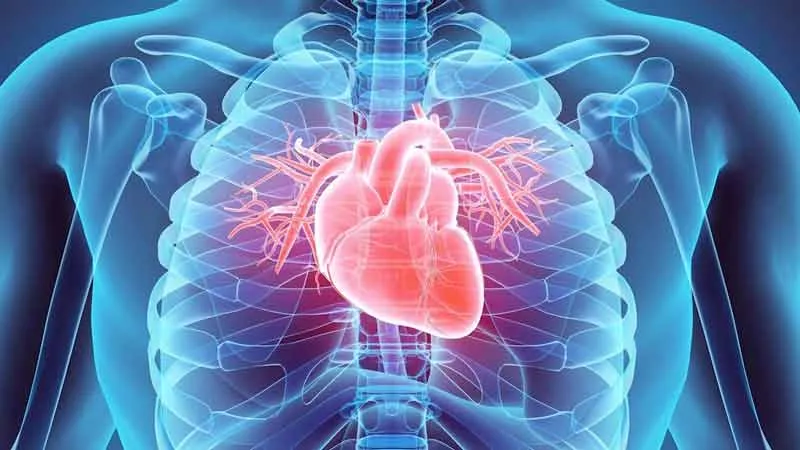Avicenna Hospitals Cardiology Department manages the diagnosis and treatment of heart diseases with its specialists. Almost all of modern medicine’s possibilities are applied in these procedures. Avicenna Cardiovascular Center’s expert heart care team provides examination, diagnosis, and treatment services to our patients of all ages.
Cardiology is the branch of medicine that provides diagnosis and treatment of heart diseases and disorders.
Cardiologist specialists are experts in heart diseases. They generally use medicines or angioplasty to treat heart disease. A cardiologist doctor will recommend you to a cardiothoracic surgeon if you require heart surgery.
Symptoms in Cardiology Diseases
- Palpitations
- involuntary weight loss in some heart diseases
- chest pain
- difficulty in breathing
- urination at night
- vomiting blood due to heart valves
- orthopnea due to aggravation of respiratory difficulties
- erectile dysfunction
- fainting
- shortness of breath
Diagnosed And Treated Diseases
The most common types of heart diseases treated in the cardiology department are:
- Heart Attack and Vascular Obstructions
- Hypertension
- Heart Arrhythmia
- High Cholesterol Levels
- Heart failure
- Heart Valve Diseases
- Peripheral Vascular Diseases
- Pulmonary Hypertension
Heart Disease Tests carried out at Avicenna Hospital cardiology department
In Avicenna Hospitals, examinations are performed 6 days a week, and our experienced specialists perform these examinations.
Cardiology procedures that are non-invasive:
Blood pressure monitoring
A blood pressure test determines if your blood pressure is normal, high, or low.
Electrocardiography ECG
The electrocardiogram (ECG) is a detailed examination of the cardiac muscles and neural conduction system. This procedure records the electrical impulses of the heart are recorded. The results are significantly more accurate when electrocardiography is analyzed with the symptoms seen by the doctors during the examination. ECG is not a suitable test procedure on its alone; further tests such as analysis and film may be necessary. In other words, ECG is an important tool for diagnosing cardiovascular occlusions, rhythm disorders, heart valve illnesses, and inadequate heart function.
Echocardiography (ECO)
ECHO, known as cardiac ultrasound, is the method to detect the movement disorder in the heart walls that develops due to the death of heart muscle tissue.
Stress echocardiography
The exercise test is important in the investigation of cardiac disease. Examining a diagnosed patient’s treatment procedure requires effort. In addition, irregularities in heartbeats are carefully examined. During the examination of various types of heart disease, the patient’s ability to exert effort is examined. Exertion’s effect on blood pressure in hypertension patients is being examined.
Nuclear Cardiology
Nuclear cardiology, infarction imaging, planar imaging, myocardial perfusion imaging, and single-photon emission computed tomography (Spect) are a group of techniques that aim to provide an accurate diagnosis of cardiovascular disorders.
Cardiology procedures that are invasive:
Blood tests
With blood tests, heart enzymes such as creatine kinase (CK), CK-MB, and troponin and hormone levels are examined. The values in these tests may be high if there is a problem with the heart. Blood cholesterol and sugar levels, both of which are considered risk factors, are also measured.
Cardiac Catheterization
Coronary artery and heart diseases can be diagnosed by the cardiac catheterization method, in which an invasive biopsy is taken from the heart and so the pressure of the heart chambers is measured.
Angiography
Angiography is the technique of evaluating the arteries using X-rays and a specific dye to determine stenosis if any. A catheter is a thin, flexible tube that is inserted into a blood vessel in the groin, arm, or neck. Through the catheter, an X-ray-visible dye is injected into the arteries. As a result, the blood flow in the veins may be seen. This technique can be used for both diagnosis and therapy.
CT coronary angiography
When compared to exercise tolerance testing, CT coronary angiography provides more accurate detection of coronary artery disease, fewer second-line investigations, and more definitive rule out of coronary artery disease at a lower cost to reach a diagnosis in patients with stable chest pain and a low to intermediate predicted risk of coronary artery disease.
Coronary Angioplasty and Stent placement
The process of angioplasty unblocks clogged coronary arteries caused by coronary artery disease. It re-establishes blood flow to the heart muscle without requiring open-heart surgery. In an emergency situation, such as a heart attack, angioplasty can be performed. It can also be done as elective surgery if your doctor feels you have heart trouble. Percutaneous coronary intervention is another term for angioplasty (PCI).
Almost all angioplasty operations now involve coronary stents. To clarify, a stent is a tiny metal mesh coil with the ability to expand. It is put into the newly opened artery to keep it from narrowing or closing again.
Atherectomy
During an atherectomy procedure, the doctor removes plaque from the inside of a vessel. Atherectomies can be performed in a variety of ways. Rotational atherectomy is a technique that includes rotating a specific burr or drill on the tip of a catheter to shave the plaque into tiny pieces. Direct atherectomy is another technique, which involves placing a small cutting device against the plaque and cutting it away from the artery.
Invasive Cardiology
It is a group of treatments that includes the use of intravascular catheter-oriented approaches in the treatment of coronary artery disease, congenital heart disease, and valvular problems. In addition, Invasive cardiologists work on congenital heart defects, valvuloplasty, coronary thrombectomy, and angioplasty for cardiac disorders and cardiology.
Cardiac Electrophysiology
It is a method of examining the electrical function of the heart by inserting small tubes into the heart, known as catheters. That is to say, Electrophysiology examinations evaluate electrical impulses in the heart, rhythm abnormalities, and tachycardia.
Cardiac Surgery
Coronary artery bypass and valvular surgery are the most frequent heart surgeries. If more sophisticated therapy is necessary, our surgical team will perform heart surgery. In conclusion, cardiology experts can provide consultations, diagnostic testing, and pre-and post-operative care. Consequently, regardless of the degree of care required in your health journey, Avicenna hospitals Health System will be there for you. Our cardiology and rehabilitation experts work with you to improve your health, so you can get back to your normal life.





